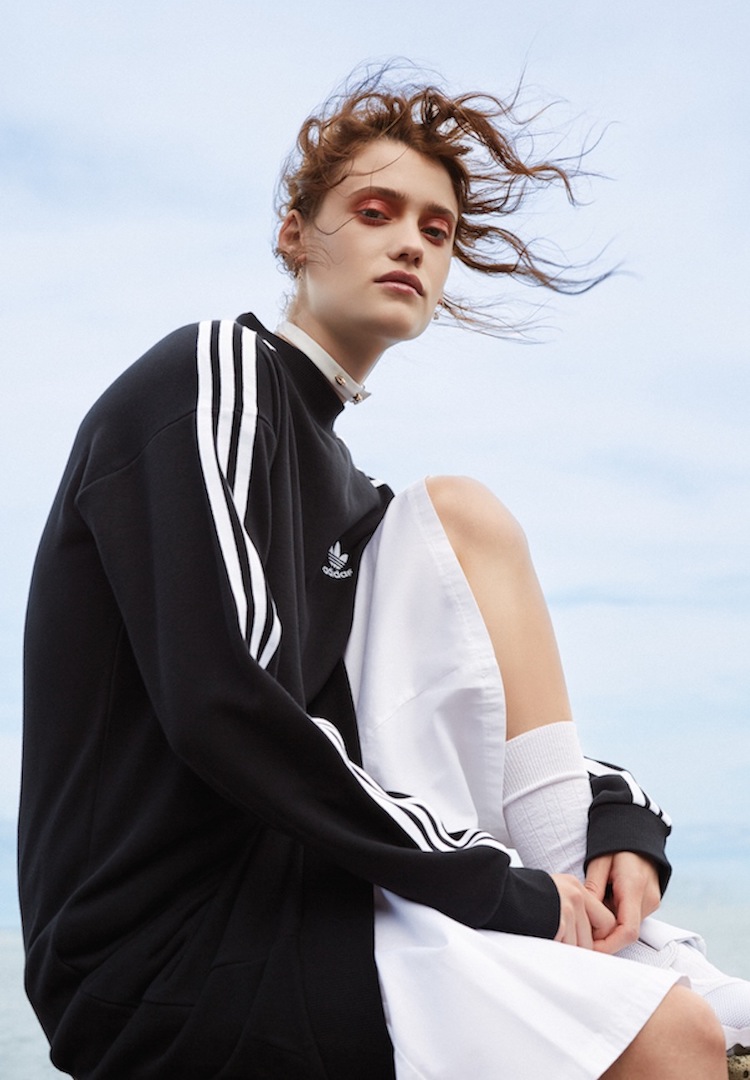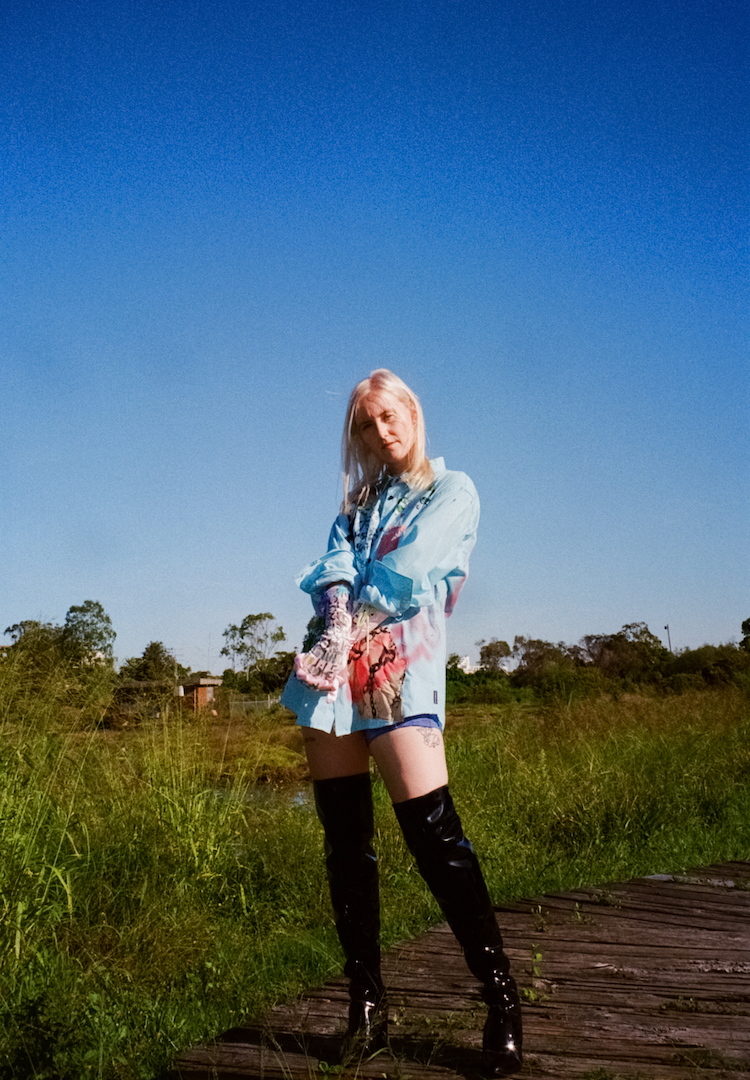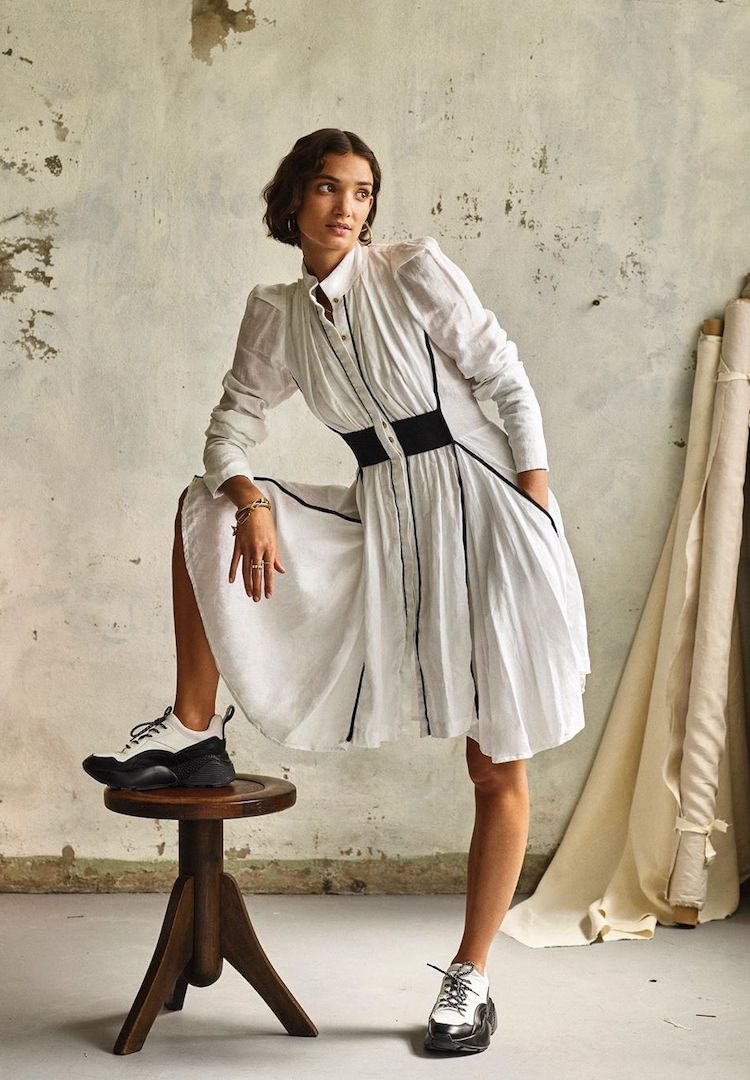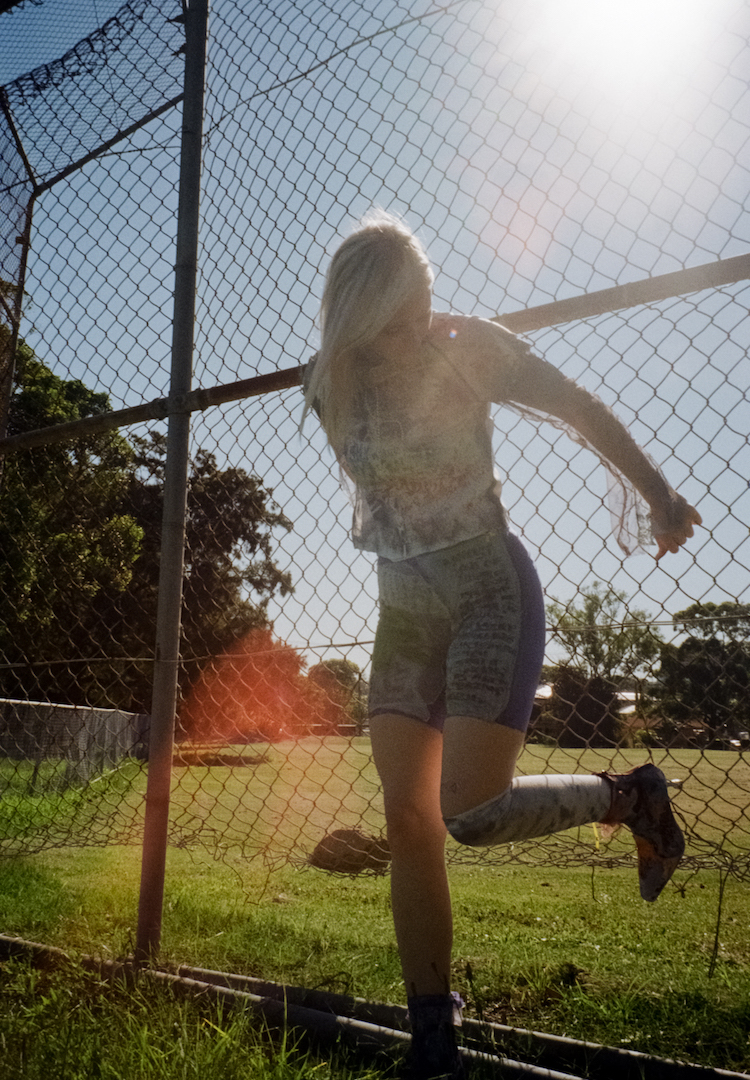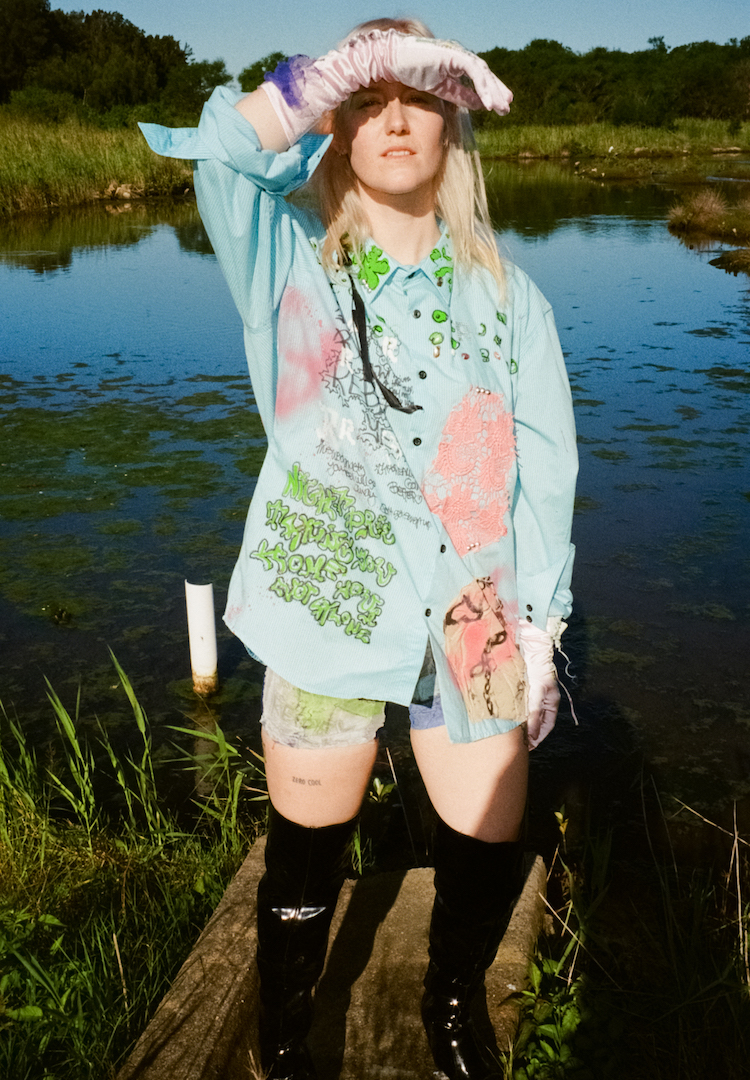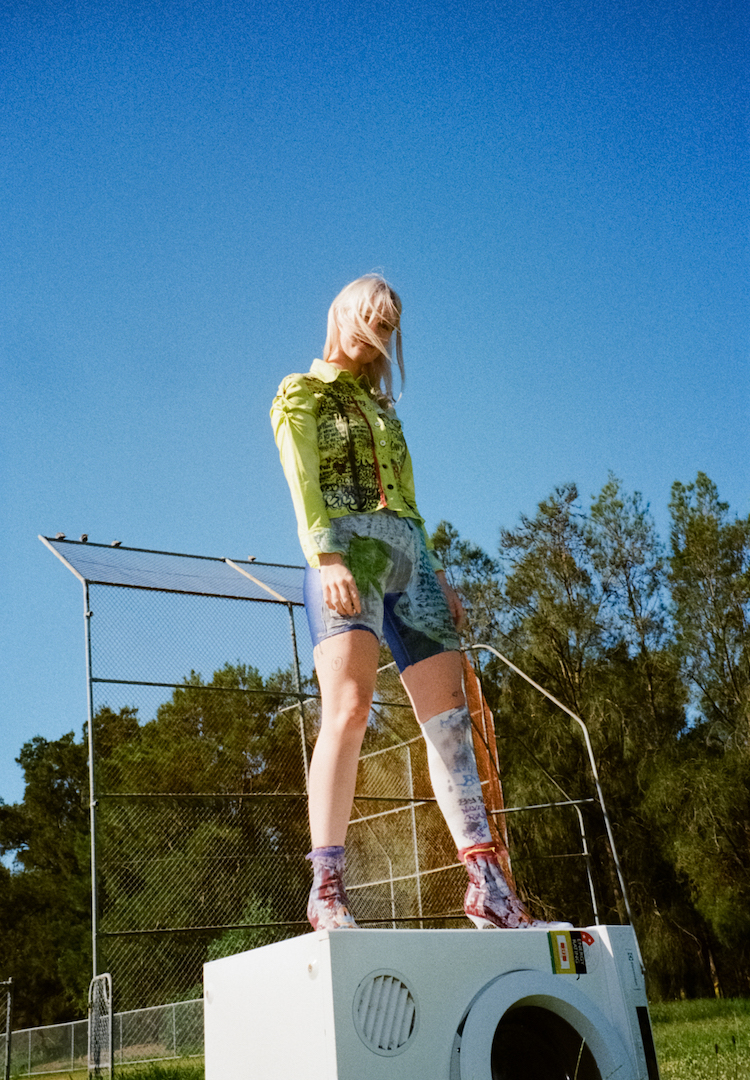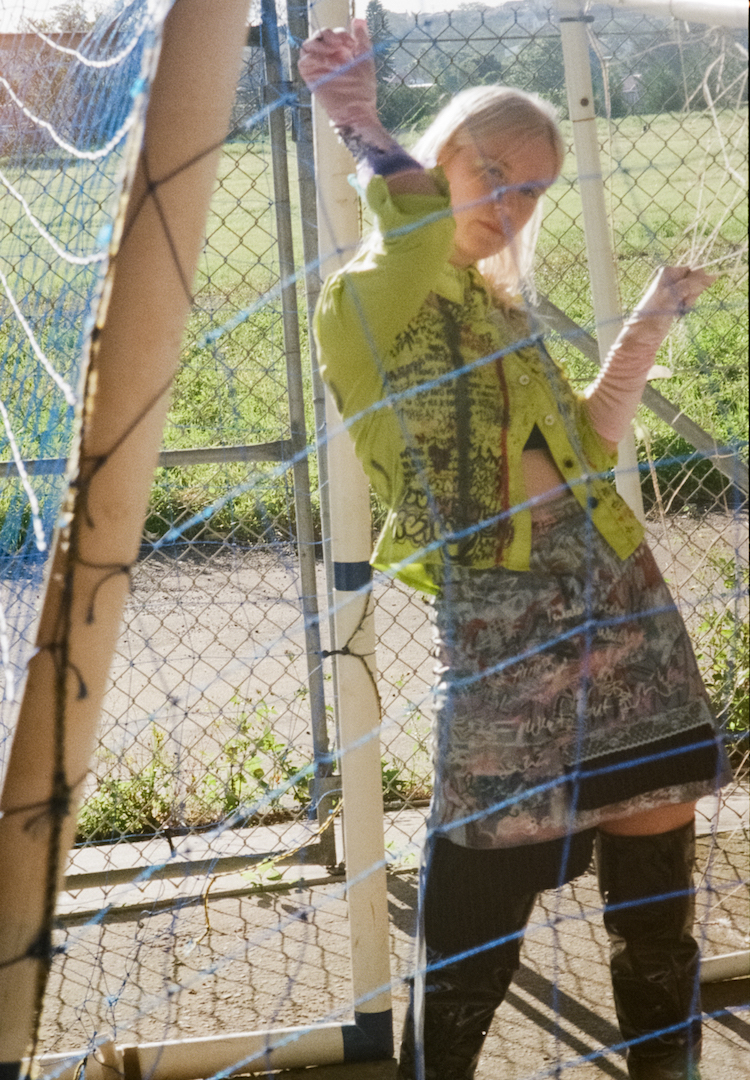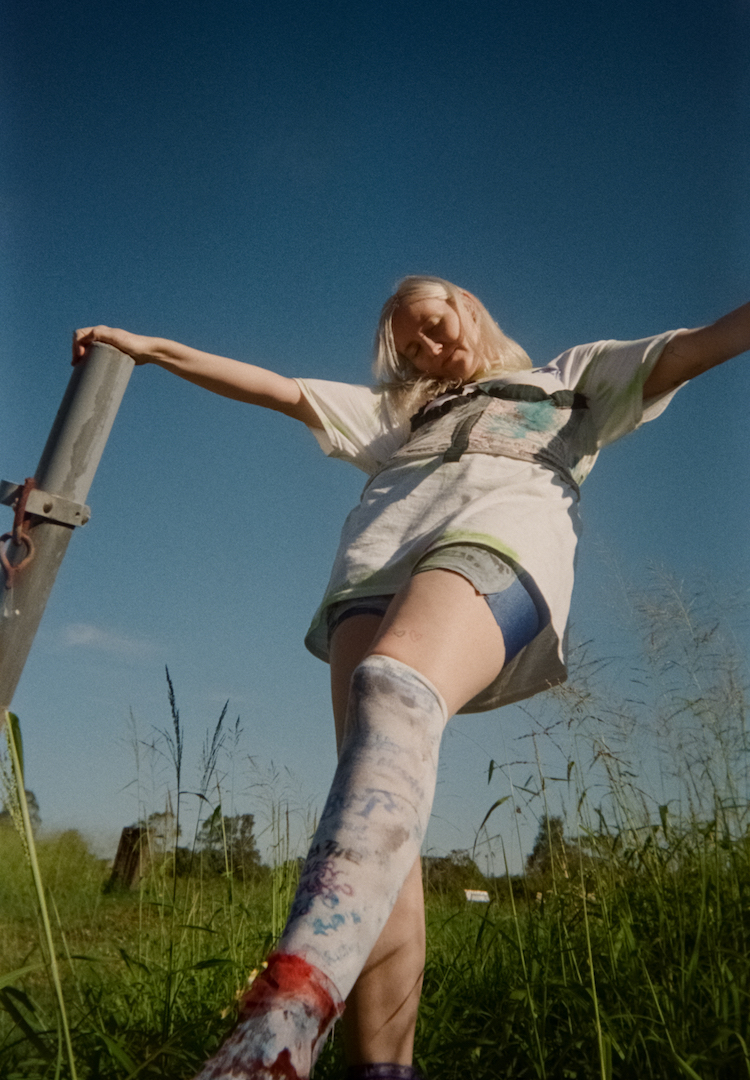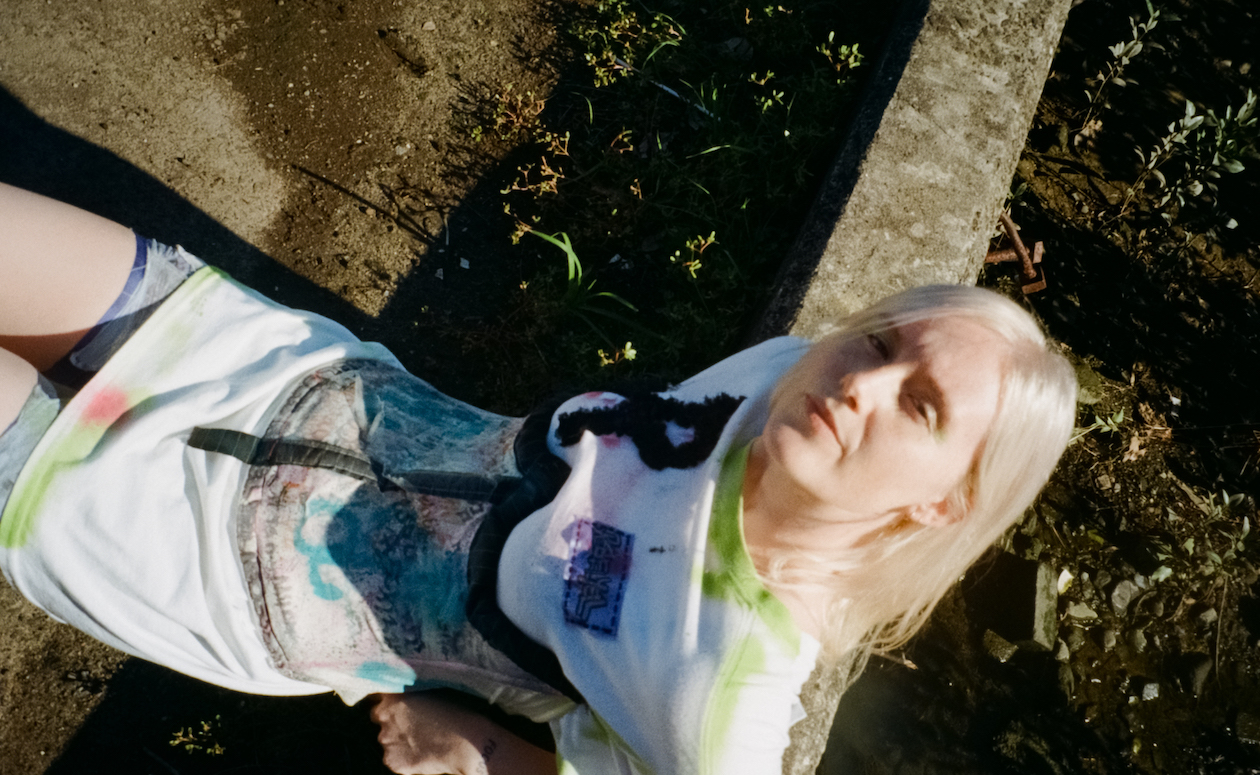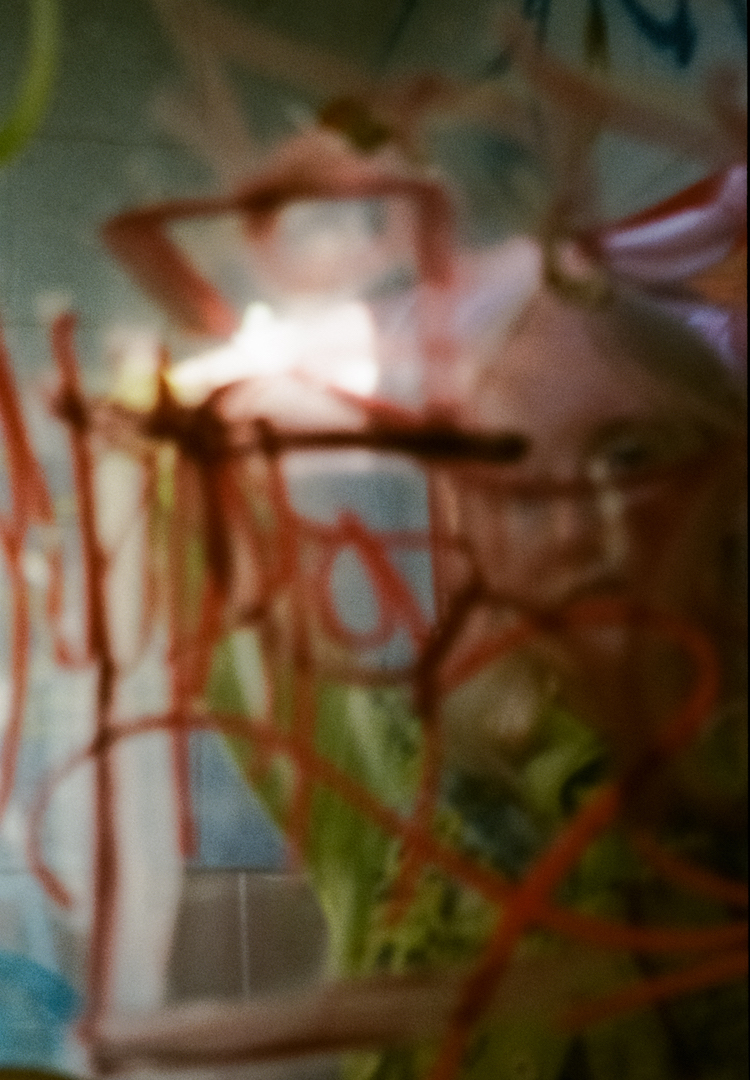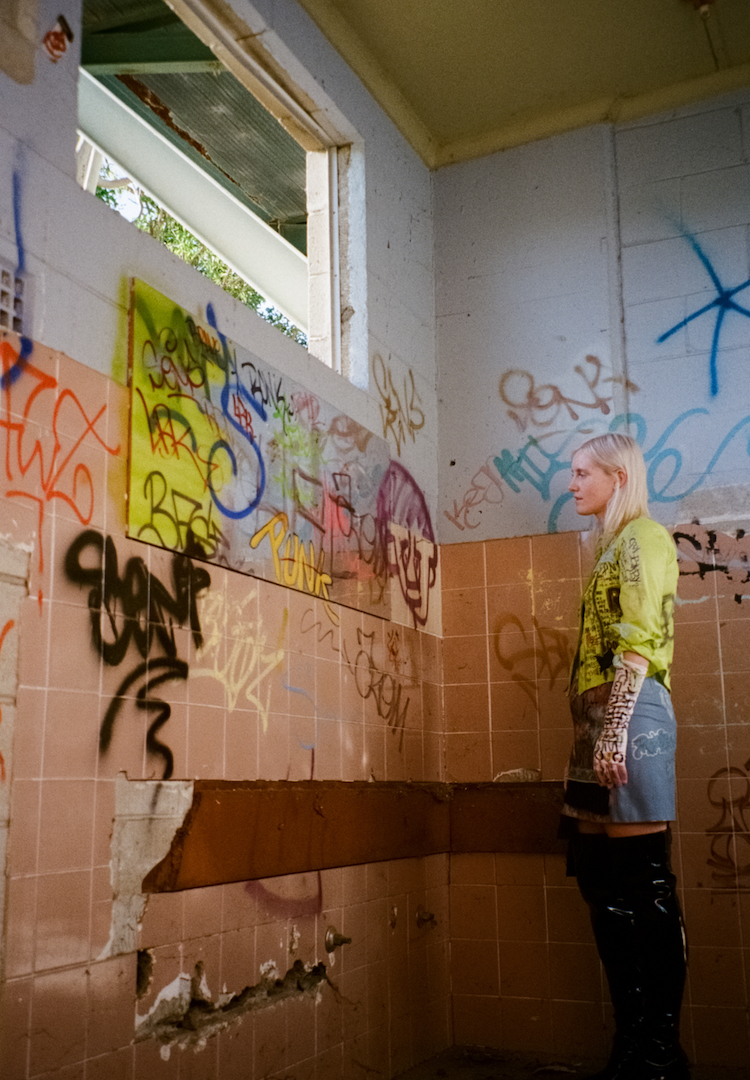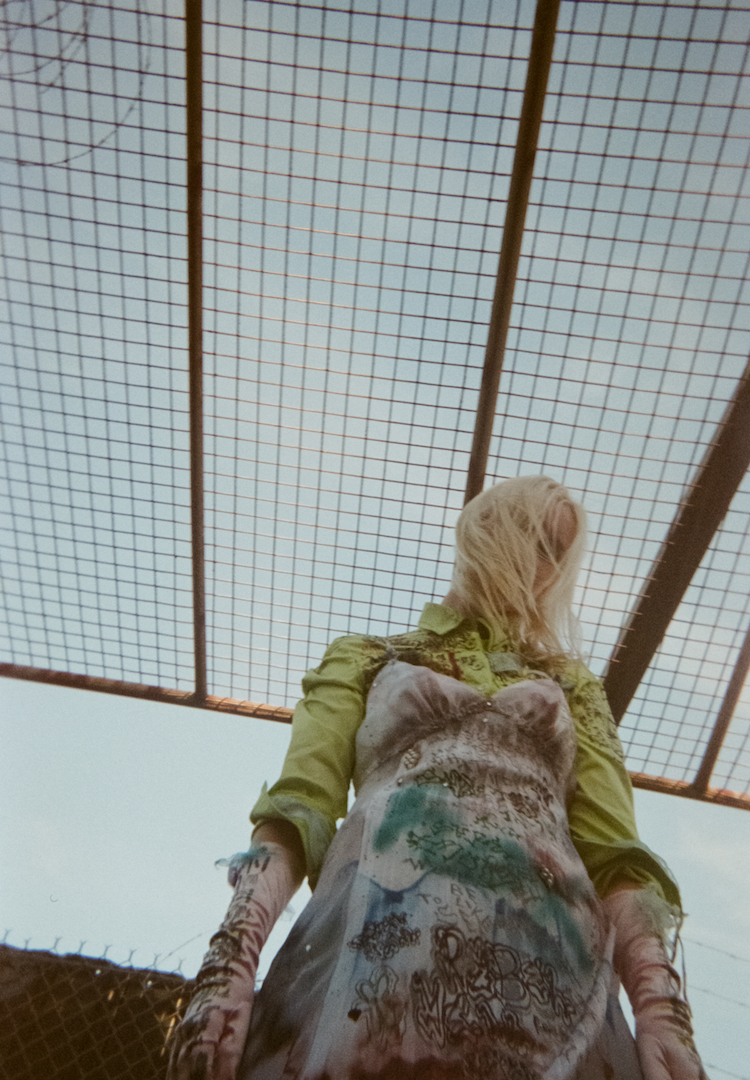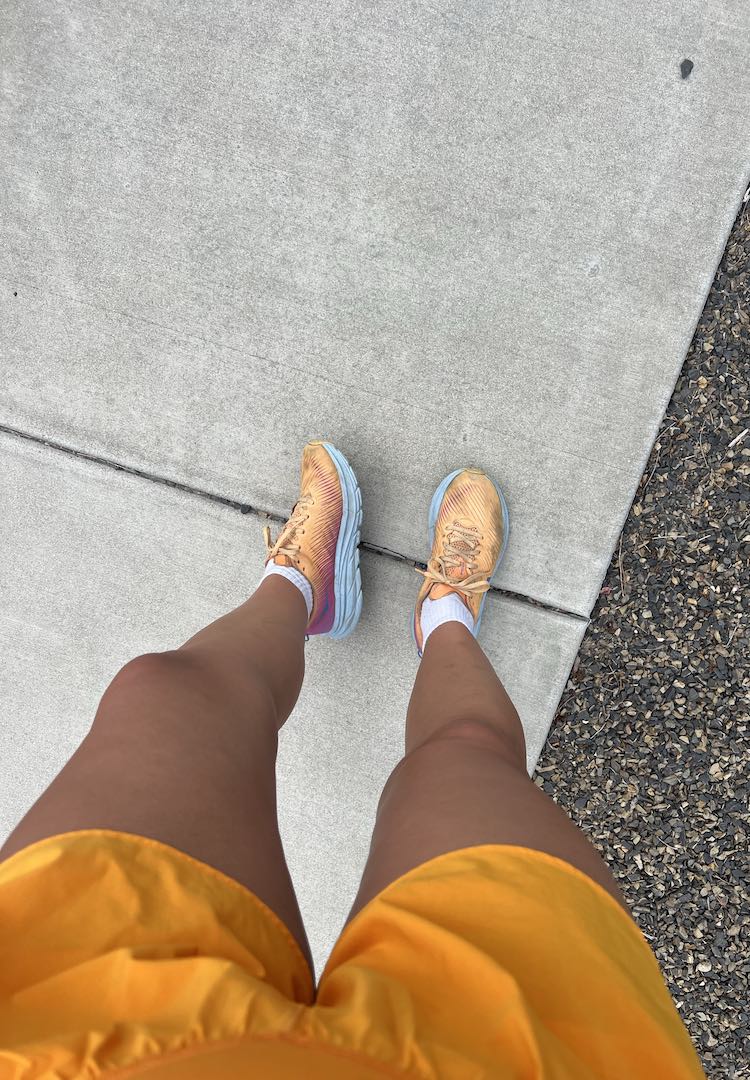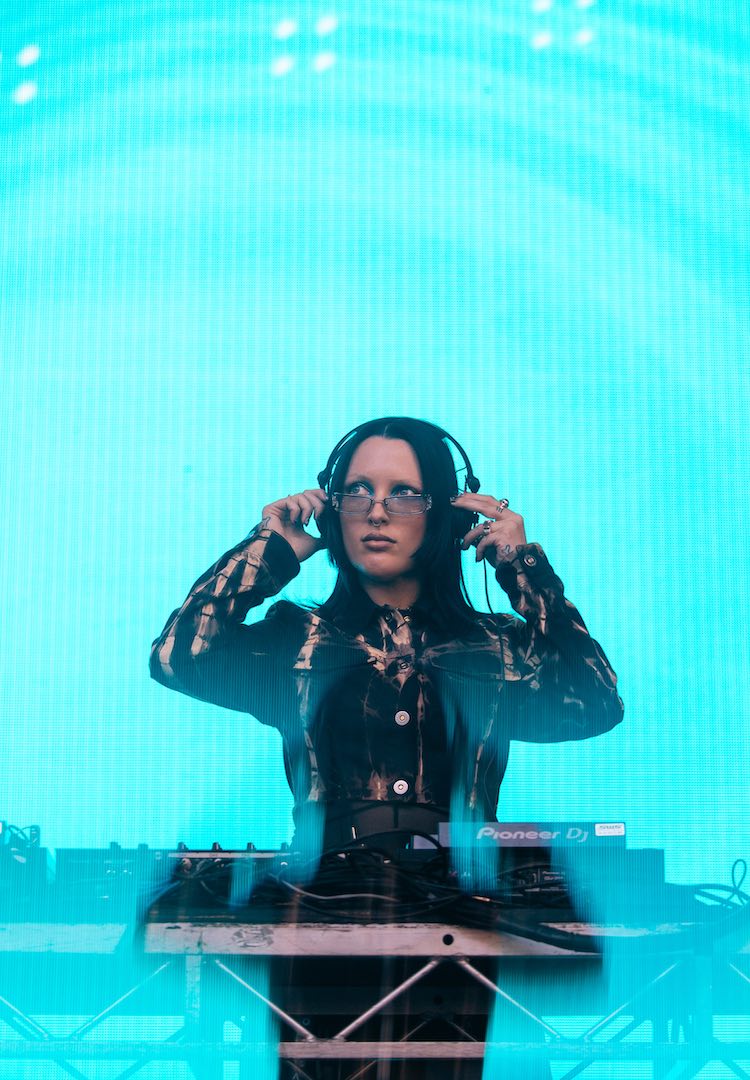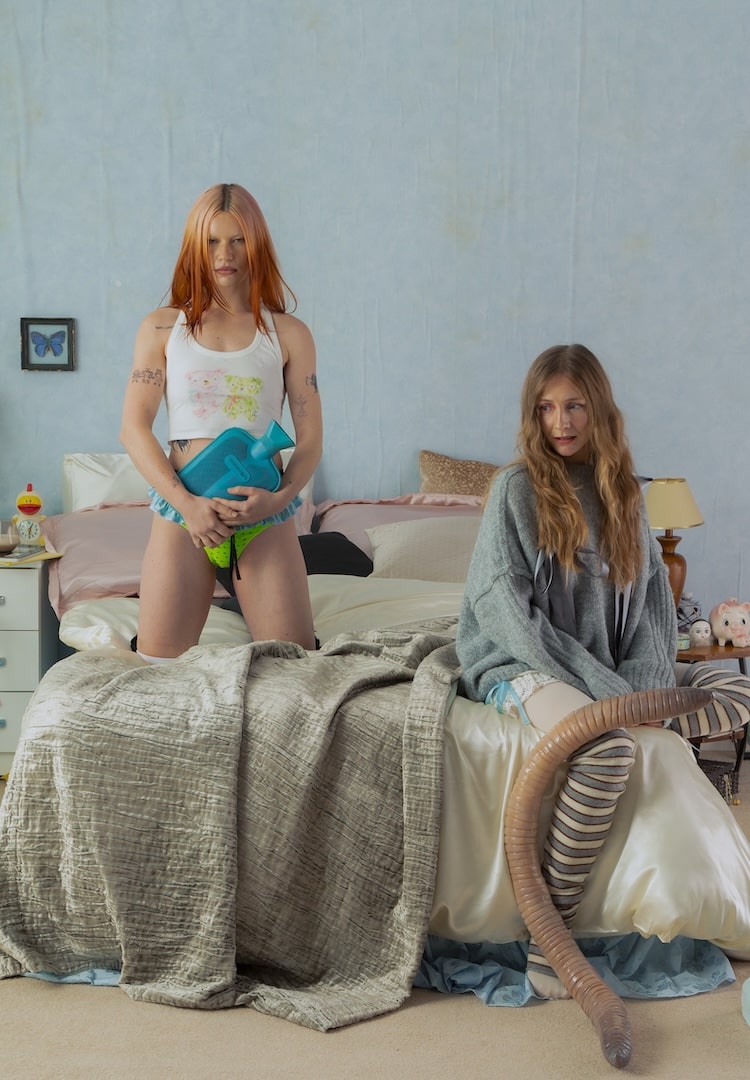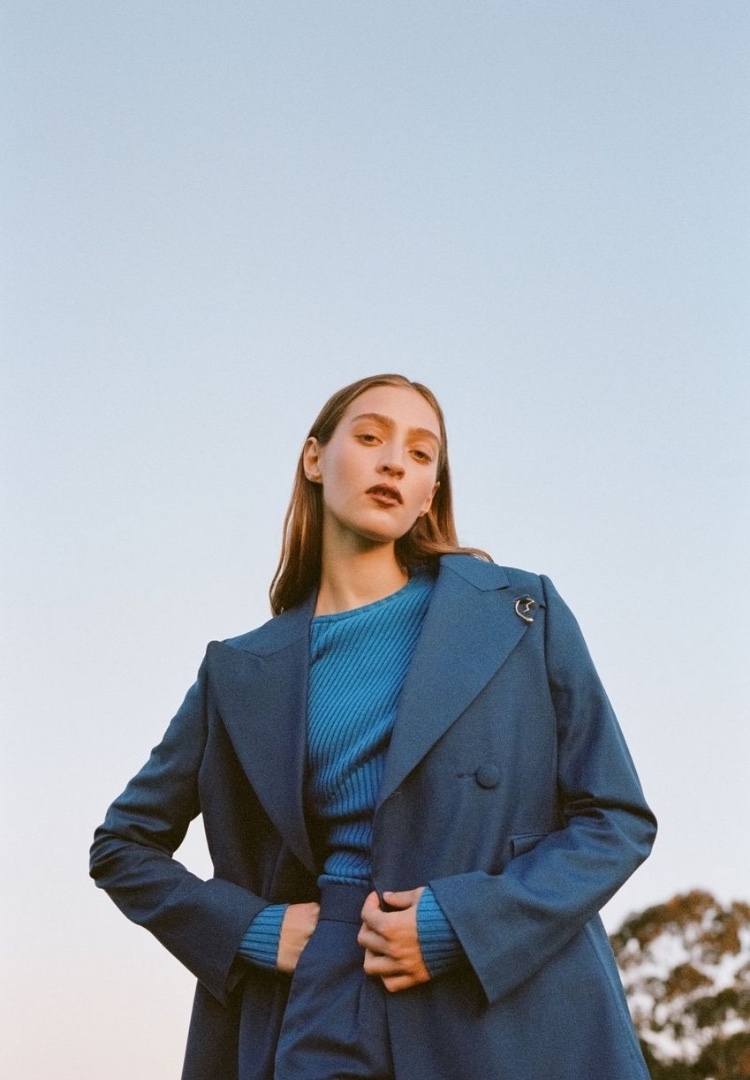Australian creatives Rebel Yell and Diaspora dissect the future of their industries

PHOTOGRAPHY AND STYLIST – STEPH LIAKOS
MODEL – REBEL YELL
ALL CLOTHING BY DIASPORA
Kindred spirits.
In the era of Instagram, it’s commonplace for creatives to hit each other up via DM to collaborate. Thanks to the Internet, they have an unprecedented reach and ease of connection that was inconceivable 20 years ago, and it’s created a plethora of new opportunities for artists around the world.
But even at the best of times, a career in the creative industries is no easy feat. For Brisbane-born electronic musician Grace Stevenson, AKA Rebel Yell, this was part of her reasoning behind linking up with avant-garde fashion label Diaspora.
For Grace’s new album Fall From Grace, Steph Liakos, the designer behind Diaspora, has created a series of custom outfits to be featured in Grace’s videos and – when live music returns – they will take the stage as Grace’s costume of choice when she heads out on tour.
Together, they put together the shoot above – a visual representation of their collaborative partnership and friendship. This is their take on navigating a creative career in Australia and the shared space between fashion and music.
So how did you two meet and what were your first impressions of each other?
Grace: I had Steph pick some outfits for me and she was really happy and bubbly.
Steph: We met at a photoshoot! I remember thinking, oh she’s so cool, like there’s no celebrity and her music is so cool.
When did you each discover you had an interest in creating music/fashion?
G: I learnt piano a little bit, but then I was always like, “Mum I want to quit” so I didn’t really retain any information. And then I bought this omnichord and sat at home doing Beach House covers when no one was home.
S: Beach House is like the most sad sad. I love that. It actually makes sense.
What about you Steph?
S: I started off making art out of like council clean up fabrics and stuff, then [I would] collage it and it was more wall-hangings. Then I was like, “Oh it would be cool if I made this into a dress.” In art class, my whole art major, the year 12 major, I didn’t make a single bit in class because I was so insecure about people seeing it. So yeah, it all just started in high school. Like frustration in figuring out myself. And my identity. And expressing how I felt about like my culture and myself really.
Grace, what was it like first coming into the music industry? What challenges did you face?
G: In the music industry, when I started out it was sort of sexist. You’d be holding a synth and guys would think you’re going to play like “nice music” or you’re carrying it for your boyfriend or something. It was sort of like the Brisbane punk scene.
S: Come on like anger and punk is like for everyone. Everyone can be angry. There’s always been women in the industry, you [referring to men in the industry] just haven’t respected them and you haven’t given them space. And like tall poppy syndrome is really big in Brisbane and Australia. And the fact that it happens so often is so bad. The fact that they’re like, “She’s trying to be like famous” or whatever. Like fuck off.
Do you think coming into the fashion industry it was different Steph?
S: This question is a bit hard for me because personally, it feels like I’m not even in the industry. I’m kinda just creating on my own clock. Yeah its about self-expression, but it’s also about recycling and stuff. There is that challenge in the fashion industry, but I don’t know. I mean, interview me in four years and I’ll have some sort of juice on this, but right now I don’t even know what the industry is.
Do you ever find it difficult putting your work out there and being vulnerable in that way?
S: Yeah, of course, you’re pulling from personal experiences.Because you’re trying to be honest, but you know that people might have an opinion on your honesty, and I guess that’s kind of how it can be difficult?
G: Yeah, we’re putting it out there and like obviously people can have their own opinions, but when you are putting something so vulnerable out in the world like you’ll obviously be a little bit hurt if someone’s making fun of you. It’s your personal experience – with both of what we do, my lyrics talk about experiences and what I stand up for, as does your [work]. If someone is going to make a negative comment about that it’s going to hurt somewhere because it’s something so important to us. If you don’t like it just don’t say anything unless it’s constructive. Don’t just bag something out [and say] “Oh it’s shit” because they’re telling very personal experiences.
Grace, is your new album a reflection of this?
G: It talks a lot about the push and pull to figure out what is Grace and what is Rebel Yell, and what is right and wrong. When I left Brisbane, I left behind a secure life and started getting tattoos and put myself into debt from touring. And this year I thought, I’ll take this teaching job and clear my debts and be stable, [and] then I even thought about quitting Rebel Yell. So the whole album is a circle of kind of going between.
Fashion and music have often been seen as a form of escapism. What do you think about this?
S: Well, rewind to last night, I had a chat with my sister in the kitchen. And we always talk about escapism, and escapism is a really big thing with me. Something I almost struggle with, ever since I was younger and in high school. So it’s like I’m escaping out of the reality, but only really to discover more. It’s like its a form of escapism, but it depends where you’re escaping to and what your point is with your escapism. I find I’m escaping while I’m making it in that moment – afterwards, it’s like I understand even more. It becomes a self-exploration journey whilst you’re escaping yourself [and] your reality. Yeah, it’s hard to explain.
What’s it like working together, what’s your process?
G: Well, more recently we went op-shopping together and gathering the clothes and then I tried them on and then I handed them over to Steph to work on.
S: You are just like one of those people that gave me full trust and that’s what I love the most. When someone’s like “This, this and this”, there’s a lot more pressure. But because you had so much trust in me, it made me feel a lot more confident. And because we were already friends, it wasn’t hard because we already have so many shared experiences together and I was like, “This is just something I really want to do for my friend”, and I feel like that’s why it’s a lot easier. That was our process, pretty much just going op-shopping, and finding things, making sure they fit, and then voila!
Where do you see the industry heading post COVID-19?
G: I’m hoping people are going to be so eager to get themselves out there and do stuff. Especially because Sydney’s lockout laws have gone now, it might just erupt.
S: I think people might be keener to pay to go to gigs. And support local artists.
G: Yeah! Because people have been supporting music online, so the value of supporting people in the arts is now so much higher.
How do you think this will change the arts industry, what needs to happen?
S: Hopefully there will be a lot of funded things. Like organised group things, I feel like it’ll be hard but there will be a lot of support from people with money who want to organise events and support artists. And everyone will join in, kind of like a big hug – I hope that happens. It’s where I think it’s going.
G: The arts are always the ones that come together to raise money for issues, and then we get nothing in return from the government but we’re always the first ones to jump towards a fundraiser to do stuff. It’s just crazy. People don’t realise they listen to music and wear clothes every day and that’s the arts and entertainment industry and they use it every single day yet won’t repay us for it.
S: There was this thing, it was a poster. The poster said “People in the arts shouldn’t be getting any money blah blah”. I was like, “Dude, a graphic designer would’ve made that poster”, so it’s like?!
Why do you think collaboration is so important?
S: I can’t explain it. You’re dipping into other people’s worlds. After collaborating I was like, “Wow, this feels so good and I’ve met so many great people.” This is why music and fashion come hand-in-hand, because there’s like a fashion to music, the way you do things, the way you play and perform.
G: I love collaboration because you’re sharing skills and different outlets with different people and you’re learning from one another. And that’s the thing as well, you meet so many great people and form strong networks and friendships.
S: Exactly, you can literally just expand your whole world, for example, three years ago, if I think about who I was – collaborating with Grace literally spiralled to so many other collaborations, so if we never collaborated, I would never be on this path. We wouldn’t be here.
Listen to Rebel Yell’s new album here. Diaspora’s one-off pieces can be found on Terminal Six.

